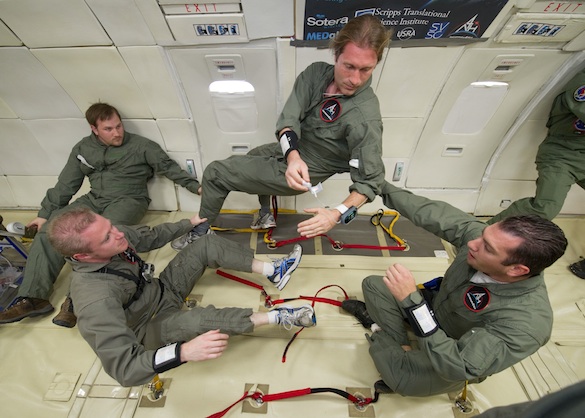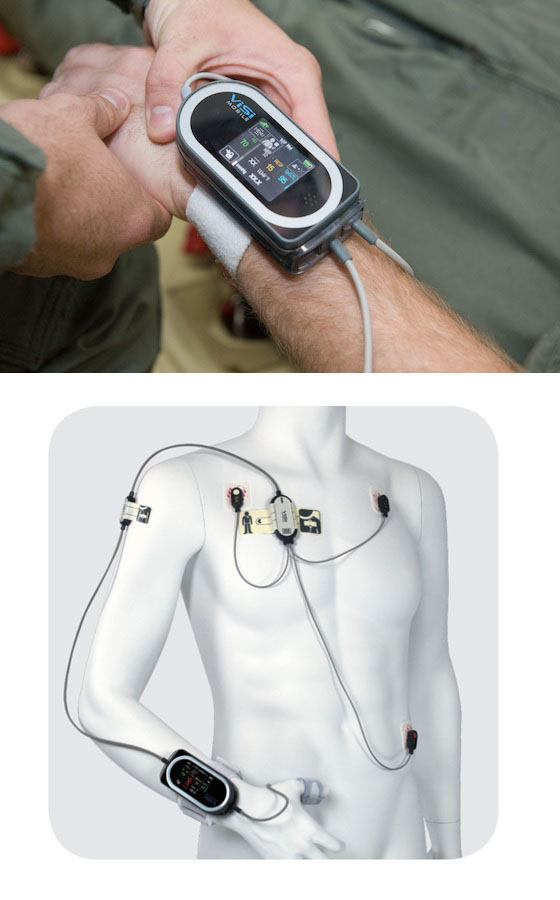Demonstration of non-invasive acquisition of physiologic variables from spaceflight participants
PI: Ravi Komatireddy, The Vital Space Team
PI: Ravi Komatireddy, The Vital Space Team

- TA06 Human Health, Life Support and Habitation Systems
The proposed assessment of device functionality as well as identification of problem areas will ultimately guide efforts for modification and improvement so that these highly capable medical tools can be used effectively for physiologic data acquisition for commercial spaceflight participants and researchers during parabolic flight, future commercial space platforms, and other areas that require continuous measurements of health and performance.
The Vital Space system is currently at a technology readiness level of 4 (TRL 4). The proposed zero-G flights are to migrate the Vital Space technology to TRL 5 & 6 where components, sub-systems, and systems are demonstrated as operational in the micro-gravity environment.
We feel that a physiologic monitoring system in the form of the Vital Space System could provide substantial value to both the growing commercial human spaceflight sector as well as becoming a useful tool to fulfill NASA goals as outlined on the technology roadmap for human spaceflight. Furthermore, we foresee that the lessons learned from physiologic monitoring using the Vital Space System could provide clinical benefit by helping to prevent adverse health outcomes and reduce health care use.
The Vital Space sensor package is suitable for a variety of application. Our initial approach is to perform a hardware checkout of the existing system for fit and usability, hardware reliability, and unexpected problems in the micro-gravity.
The ViSi Mobile biosensor platform, developed by Sotera Wireless Inc. (San Diego, CA) will collect data for this flight opportunity; the ViSi Mobile platform is ideal for physiologic monitoring of commercial spaceflight participants (CSPs) in multiple environments including ground based testing, parabolic flights, and commercial space platforms. It provides continuous, noninvasive measurement of blood pressure (cNIBP) without using a cuff, and additional measurements of oxygen saturation (SpO2), heart rate (HR), respiratory rate (RR), skin temperature, and multi-lead electrocardiogram (ECG). It features a wrist- worn transceiver, a ring-shaped optical sensor that attaches to a base of the patient’s thumb to measure an optical photoplethysmogram (PPG) waveform used for SpO2 and cNIBP measurements, and a complete digital ECG system that attaches to the patient’s chest. A trio of 3-axis accelerometers embedded within the ECG sensor, wrist-worn transceiver, and cable connecting these components provides sophisticated detection of accelerometer (ACC) waveforms; ViSi Mobile analyzes these to determine the patient’s motion and posture.

Technology Details
-
Selection DateAFO2 (Oct 2011)
-
Program StatusCompleted
- 1 Parabolic
Development Team
-
PIRavi Komatireddy
-
OrganizationThe Vital Space Team
-
Sponsor
-
PartnersSotera Wireless Inc.
-
More Information

